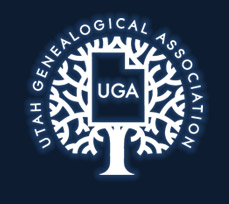 |
 |
*All stated times are Mountain Daylight Time. Please adjust based upon your individual time zone.
Conference
|
| Time | Presenter | Topic |
|---|---|---|
| 9:00 am* | Judy Russell | The Discriminating Genealogist: Telling Good Evidence from Bad |
| 10:30 am | Michael Hait | Laying a Solid Foundation: Planning for a Specific Research Goal |
| 1:00 pm | Angela Packer McGhie | History, Records, and Context: Researching the Locations Your Ancestors Lived |
| 2:45 pm | Michael Strauss | Looking Beyond the Basics: Researching Land in Military Records |
| 4:30 pm | LaBrenda Garrett-Nelson | Transcribing Documents: There Is More Than Meets the Eye |
| 7:00 pm | Gena Philibert-Ortega | Social History - Bring Them to Life! |
Dodging DNA Dangers
Presented by Blaine Bettinger, PhD, JD
DNA is a powerful tool for genealogists, but it is not without its dangers including small segments, pile-ups, and confirmation bias. Together we’ll not only examine these dangers, but we’ll learn ways to dodge the dangers!
Problem Solving with DNA: Case Studies
Presented by Patti Lee Hobbs, CG
This presentation examines three (or four!) relationships that were either unknown or unproven from documentary research. Travel along as we embark on the journey of discovery using DNA and documentary resources.
Solving Unknown Parentage with GWorks
Presented by Kitty Munson Cooper
DNA is often the only key to solving unknown parentage cases. However, there is a tool that can assist in solving these cases. Kitty Munson Cooper walks you through the basic methodology for using DNA with unknown parentage by focusing on how to use GWorks from the DNAgedcom website with results from Ancestry’s DNA testing. This includes several new tools.
The Discriminating Genealogist: Telling Good Evidence from Bad
Presented by Judy G. Russell, JD, CG, CGL
The “best evidence” rule in law requires the presentation in court of an original rather than a copy, and a copy won’t even be admitted if the original is available. In genealogy, our rules require us to do the same: to discriminate, choose in favor of, prefer certain types of evidence to others, certain bits of information to others, certain sources to others.
Laying a Solid Foundation: Planning for a Specific Research Goal
Presented by Michael Hait, CG, CGL
How we begin our research prepares us for success. Attendees will learn how to write a strong research question, evaluate our previous research, and create thorough research plans.
History, Records, and Context: Researching the Locations Your Ancestors Lived
Presented by Angela Packer McGhie, CG
Learning about the places where our ancestors lived helps us put them in historical context, as well as locate relevant records. For each location, we need to learn about the history, geography, customs, laws, and records. This session will demonstrate the process and provide resources on where to locate this type of information so that we can better understand our ancestors and interpret the records they left behind.
Looking Beyond the Basics: Researching Land in Military Records
Presented by Michael Strauss, AG
As experienced genealogists we get exposed over time to many new records sets. We often dig deeper into documents not considered before. Some of the least understood records come from land and military resources as the two can become intertwined inside early military service. Looking at records found in both pensions, and bounty land applications can provide useful clues used to break down barriers in our family tree.
Transcribing Documents: There Is More Than Meets the Eye
Presented by LaBrenda Garrett-Nelson, JD, LLM, CG, CGL
The first component of the Genealogical Proof Standard is the conduct of reasonably exhaustive research, preferably using original records. Especially for periods before the 20th century, the emphasis on original sources will require the transcription of handwritten records as the first step in analyzing a record's content. Using a variety of documents, this course will cover selected Genealogy Standards, including those relating to the accuracy, completeness, and analysis of background context of a document.
Social History -- Bring Them to Life!
Presented by Gena Philibert-Ortega
Names, dates, and places are obviously vital to family history research. However, think about how uninteresting your favorite movie would be if there were no images, background music, or explanation about the time period or events. We bring our ancestors to life when we fill in the details that add context. Social history, the history of everyday life, provides those details and can be found online and in archival, library, and museum collections.
Copyright © 2024 Utah Genealogical Association |
* Powered by EasyNetSites.com Webware * |